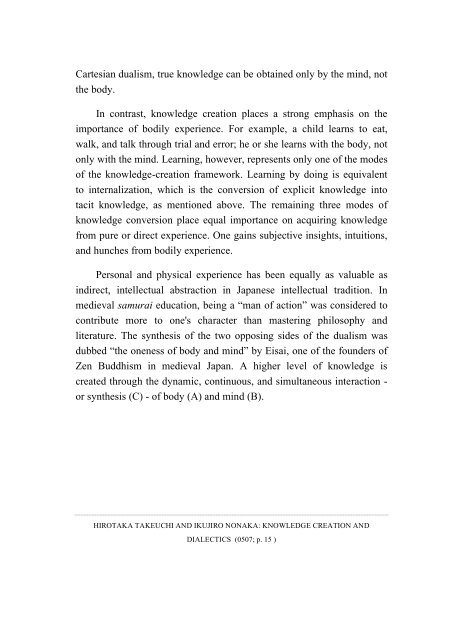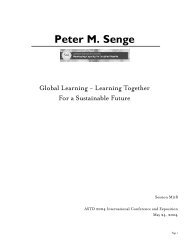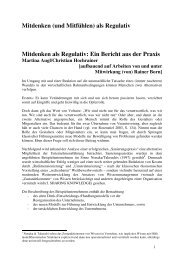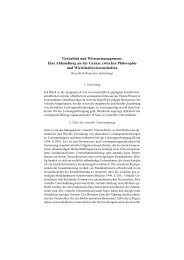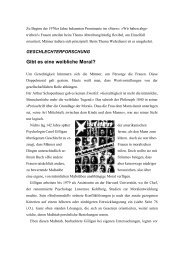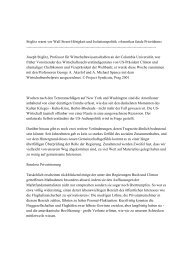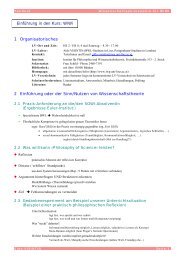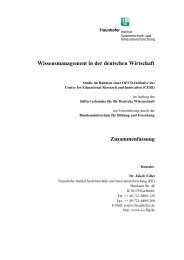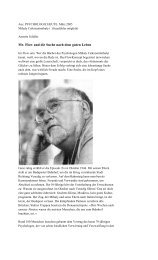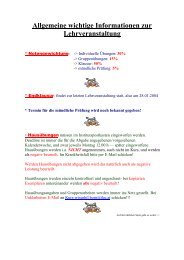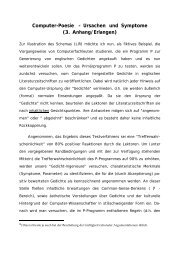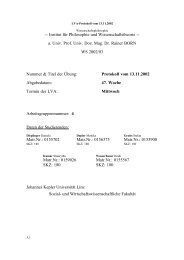KNOWLEDGE CREATION AND DIALECTICS
KNOWLEDGE CREATION AND DIALECTICS
KNOWLEDGE CREATION AND DIALECTICS
Create successful ePaper yourself
Turn your PDF publications into a flip-book with our unique Google optimized e-Paper software.
Cartesian dualism, true knowledge can be obtained only by the mind, not<br />
the body.<br />
In contrast, knowledge creation places a strong emphasis on the<br />
importance of bodily experience. For example, a child learns to eat,<br />
walk, and talk through trial and error; he or she learns with the body, not<br />
only with the mind. Learning, however, represents only one of the modes<br />
of the knowledge-creation framework. Learning by doing is equivalent<br />
to internalization, which is the conversion of explicit knowledge into<br />
tacit knowledge, as mentioned above. The remaining three modes of<br />
knowledge conversion place equal importance on acquiring knowledge<br />
from pure or direct experience. One gains subjective insights, intuitions,<br />
and hunches from bodily experience.<br />
Personal and physical experience has been equally as valuable as<br />
indirect, intellectual abstraction in Japanese intellectual tradition. In<br />
medieval samurai education, being a “man of action” was considered to<br />
contribute more to one's character than mastering philosophy and<br />
literature. The synthesis of the two opposing sides of the dualism was<br />
dubbed “the oneness of body and mind” by Eisai, one of the founders of<br />
Zen Buddhism in medieval Japan. A higher level of knowledge is<br />
created through the dynamic, continuous, and simultaneous interaction -<br />
or synthesis (C) - of body (A) and mind (B).<br />
HIROTAKA TAKEUCHI <strong>AND</strong> IKUJIRO NONAKA: <strong>KNOWLEDGE</strong> <strong>CREATION</strong> <strong>AND</strong><br />
<strong>DIALECTICS</strong> (0507; p. 15 )


